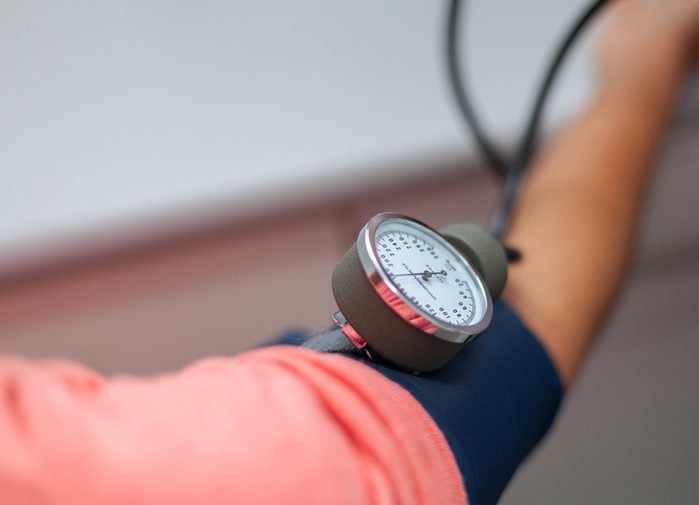
Your blood pressure will be lower
Sodium is an important element that helps regulate fluid levels in the body. And while it is possible to not get enough salt in your diet, the vast majority of Americans actually consume way more than they need. One negative effect of too much salt? High blood pressure. “Substantial studies and evidence have linked sodium intake with hypertension,” says Amin Yehya, MD, advanced heart failure cardiologist at Piedmont Heart Institute and author and editor of the textbook, Heart Failure: What a Non-Heart Failure Specialist Needs to Know. Too much sodium causes the body to hold onto water to balance it out, leading to increased blood volume and pressure on the circulatory system. Here are 23 foods that help lower high blood pressure.
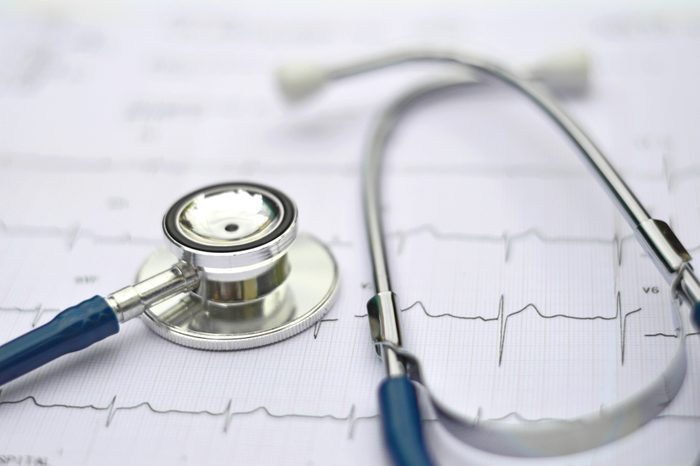
Your risk of heart attack and stroke will go down
High blood pressure is a major risk factor for cardiovascular disease, so lowering blood pressure by reducing sodium intake can also lower your risk for heart attack and stroke. “Worldwide, 54 percent of strokes and 47 percent of heart disease are attributed to hypertension,” says Dr. Yehya. “Excess sodium has blood pressure-independent effects promoting left ventricular hypertrophy [a pumping problem of the heart’s main chamber] as well as fibrosis [thickening and scarring] in the heart and arteries.” Although there has been some debate on the direct link between salt consumption and heart health, the American Heart Association remains firmly on the side of sodium reduction.
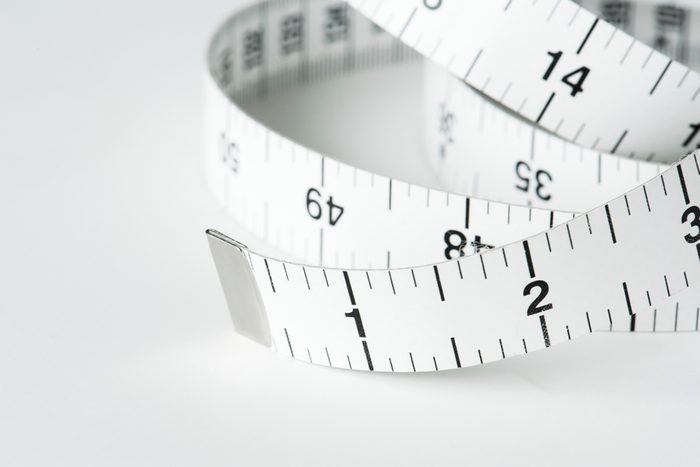
You’ll lose water weight
Ever notice how your rings are tight after you eat a salty meal of hot dogs and french fries? That’s because the extra sodium causes your body to retain water. “Your kidneys are programmed to maintain a ratio of electrolytes, including sodium,” says registered dietitian Erin Palinski-Wade, RD, author of Belly Fat Diet for Dummies. “When you consume too much sodium, this ratio gets thrown off, so your kidneys hold onto more water to balance it. When you reduce your sodium intake, this balance is shifted and the kidneys no longer hold onto the excess fluid, helping you to lose the water weight.” Read about the 24 ways salt is making you sick.
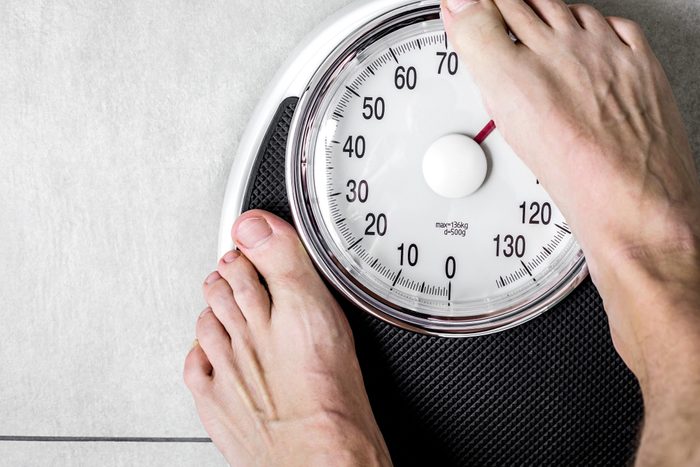
You may lose real weight, too
By reducing sodium, you’ll likely start eating healthier. This is because most salt in our diet doesn’t come from table salt—it comes from processed and prepared foods, which use high amounts of sodium as a preservative; they contain plenty of other unhealthy ingredients, as well. “If you start to shift your diet to include more whole, unprocessed food, this naturally helps to reduce sodium intake,” Palinski-Wade says. “In addition, this can help to reduce your intake of added sugars and refined carbohydrates while increasing fiber. This shift can promote a reduction in calories with an increased feeling of fullness that can lead to weight loss.” Find out the 13 foods with way more salt than you realize.
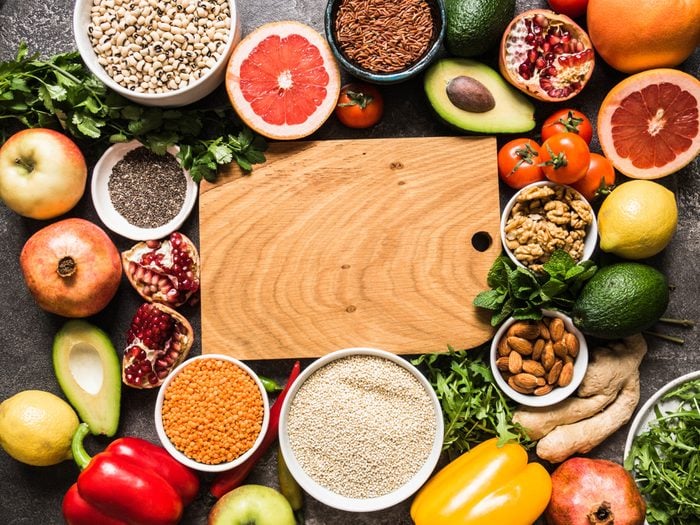
Your potassium needs may change
Following a DASH diet (Dietary Approaches to Stop Hypertension) of lots of fruits and vegetables can help reduce sodium. But, it’s also important to maintain enough potassium, which helps balance out sodium. “As sodium intake increases, the demand for potassium can increase as well,” Palinski-Wade says. “A low potassium intake with a high sodium intake can increase the risk of high blood pressure. Some research suggests that eating more potassium may reverse the effects of too much sodium in the diet, and diets rich in potassium have been shown to lower blood pressure levels.” Fruits, veggies, and beans are excellent dietary sources of potassium. But those with kidney problems may have problems filtering excess potassium, so check with your doctor before increasing your intake.
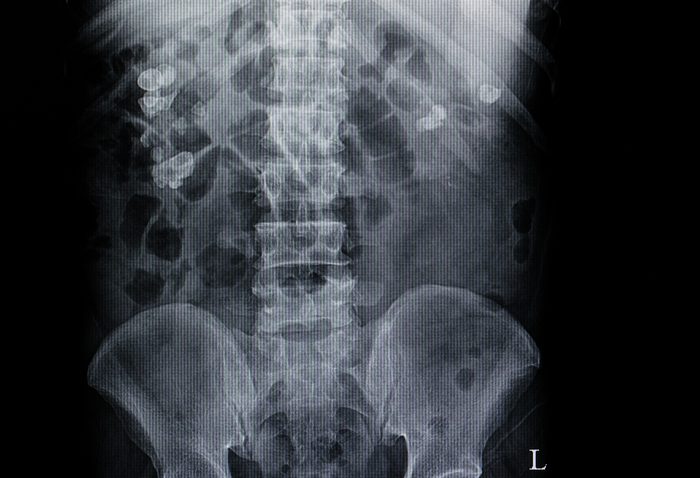
Your other organs will be healthier
Less salt may help other organs besides your heart. According to the National Kidney Foundation, high blood pressure can damage the kidneys and lead to kidney failure. Plus, “independent of its effects on blood pressure, excess sodium intake can affect the kidneys,” says Dr. Yehya, even causing renal stones. In addition, too much sodium can up your risk for osteoporosis, as it increases how much calcium—crucial important for bone health—is excreted in urine. High sodium can also lead to impaired cognition in the brain through reduced blood flow. Here are 7 clear signs you’re eating too much salt.
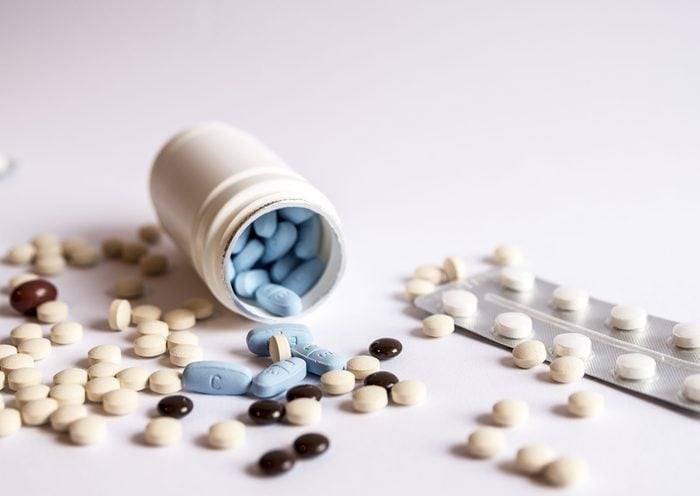
You might need fewer blood pressure meds
For people who already have high blood pressure, lifestyle remedies including reducing salt in the diet can be enough to avoid medications altogether. “Reduced sodium intake can lower the blood pressure and help in hypertension control,” Dr. Yehya says. But a low sodium diet can even be effective if incorporated later. “Some patients might eventually be weaned off or have reduced doses of medications if they pursue a DASH diet and consume low sodium,” Dr. Yehya says. Check out the 9 best diet snacks for when you’re trying to cut back on sodium.
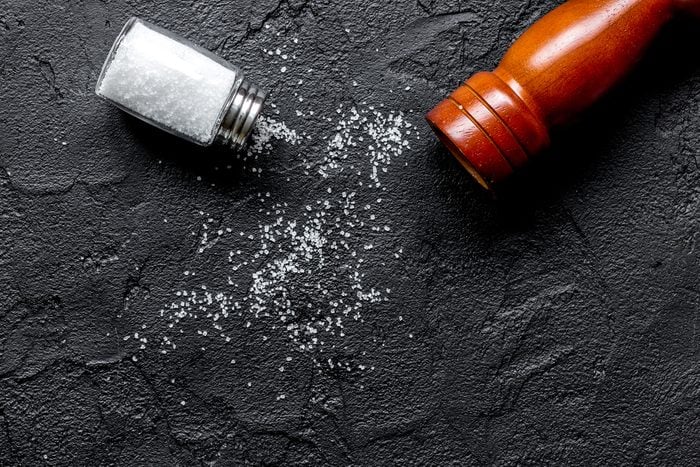
Your risk factors can change your salt tolerance
Researchers are still debating whether a low-salt diet can improve the health of people with normal blood pressure, but most still advise aiming for the daily recommended guidelines. The reason? Nearly one in three adults will develop hypertension. “According to the Centers for Disease Control and Prevention, Americans consume on average greater than 3,400 mg of sodium per day, which is more than 147 percent of the recommended limit,” Dr. Yehya says. “The American Heart Association still recommends limiting total sodium consumption to less than 1,500 mg a day.” (Though the group does allow an upper limit of 2,300 mg.) Talk to your doctor about the best limit for you.

You can get too little sodium
Your body does need some sodium: Although it’s relatively rare, too little salt can cause health troubles. “A few observational studies note that a ‘too low’ sodium diet can be harmful, but there is no general consensus on that,” Dr. Yehya says. Too little sodium—known as hyponatremia—may be caused by a combination of overexertion, sweating too much, and drinking too much water (such as when running a marathon). Hyponatremia can also be a danger for people on diuretics (water pills) for high blood pressure, and those with congestive heart failure. Some people with low blood pressure may also need a higher salt intake, so check with your doctor before embarking on an extremely low-sodium diet. Here are 13 things you probably never knew about salt.
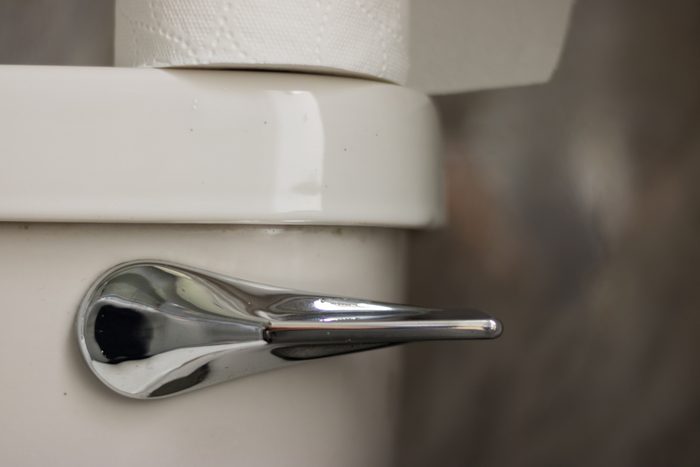
You may go to the bathroom less
A high salt diet can lead to dehydration—and it can make you really thirsty. “Eating more sodium alone doesn’t cause you to pee more, but it can increase thirst—and as you drink more, you are more likely to excrete more urine,” Palinski-Wade says. “High sodium diets without additional fluid intake can, however, force the body to pull water out of other cells, which may increase the risk of dehydration.” Reducing your salt intake can help keep your fluid levels more balanced, with less risk of dehydration or trips to the toilet: One study showed lowering sodium led to fewer nighttime bathroom visits.
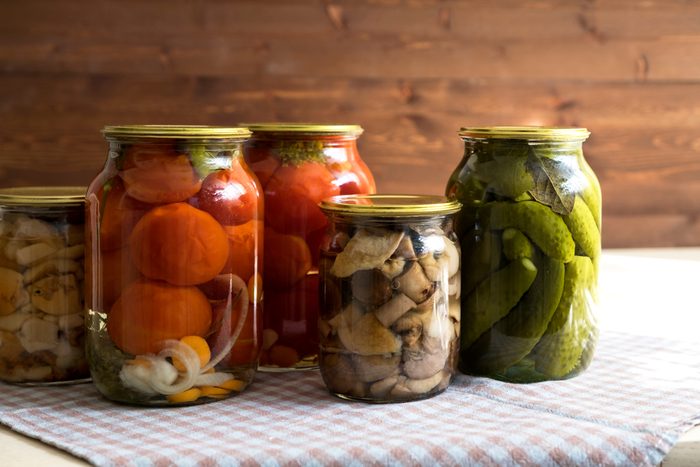
Your risk of stomach cancer will decrease
“Increased sodium intake has been linked to gastric cancer,” Dr. Yehya says. Although research confirms this, the exact reason for the link isn’t known. According to the American Cancer Society, certain gut bacteria thought to be a cause of stomach cancer are more prevalent in high salt diets; it’s a reason why the organization recommends cutting back on salted fish and meats as well as pickled vegetables.

You may have fewer headaches
A 2014 study from Johns Hopkins found that people who reduced the sodium in their diet had fewer headaches than people who continued to eat the same way. Interestingly, it didn’t matter what type of diet they were on—DASH or a typical Western diet: The only thing that mattered was the level of sodium. Although the researchers aren’t sure why sodium has this effect, they theorize blood vessels may have to expand to accommodate extra blood volume sodium creates, triggering pain. “Reduced dietary sodium intake offers a novel approach to prevent headaches,” the authors concluded.
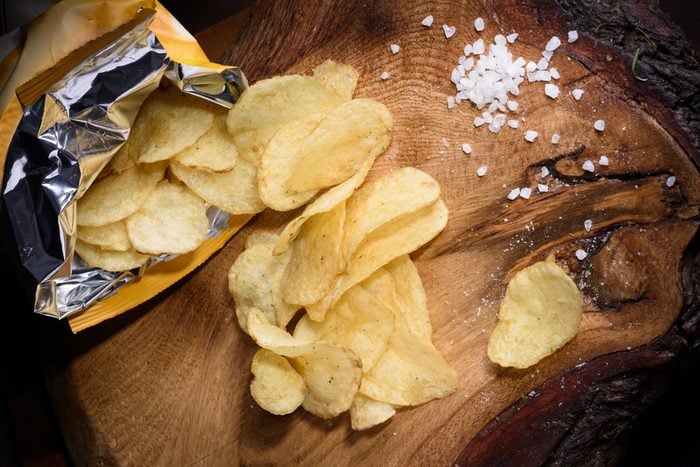
You’ll start to crave less salty foods
Cutting down on salt in your diet doesn’t mean everything will taste bland: “Large amounts of added salt can dull your taste buds, which means you will need more and more salt to achieve the desired ‘salty’ taste you crave,” Palinski-Wade says. “As you scale back on your salt intake, your taste buds become more sensitized, and that allows you to appreciate the salt more and help you to satisfy your salt fix with less actual sodium.” One serving of this common food has more salt than a McDonald’s burger.
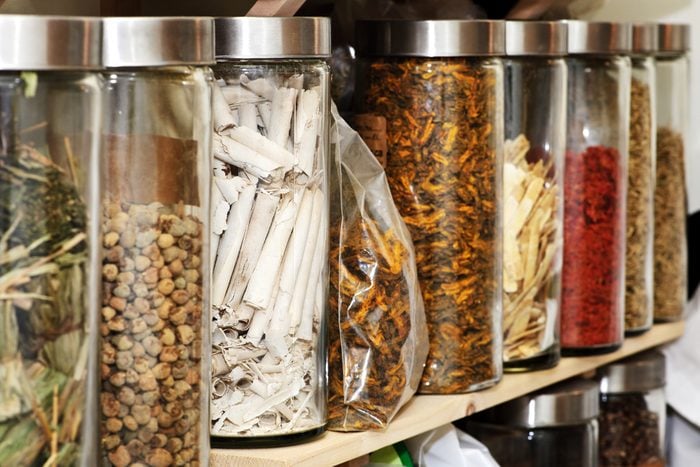
You’ll discover other flavors
As you start to cook with less salt, you’ll discover other flavors that add just as much flair to your food. “There are so many delicious seasonings and spices—many that offer health benefits—that can make food more appealing,” Palinski-Wade says. “Experiment with adding cinnamon, garlic, chili powder, and even nutmeg to flavor your food in different ways without reaching for the salt shaker.” Check out the magic ingredient that reduces your sodium and boosts flavor.
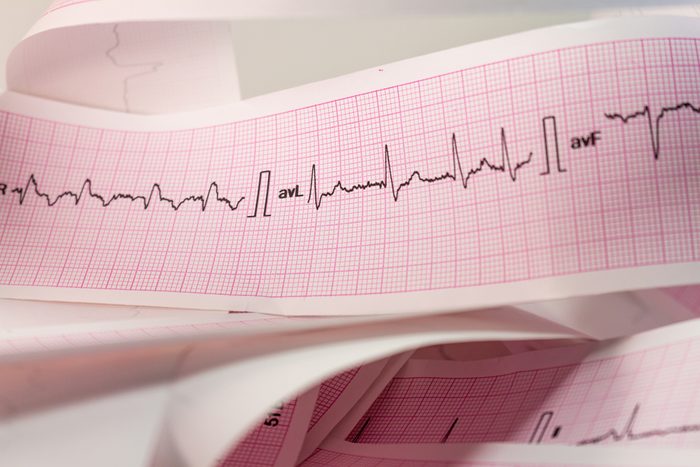
You’ll reduce your risk of death from any cause
The American Heart Association has set a goal of reducing cardiovascular deaths by 20 percent, in part by raising everyone’s awareness of the dangers of sodium, Dr. Yehya says. In addition, he says, “studies have reported that reducing sodium intake by 1,200 mg daily could lead to up to 120,000 fewer coronary heart disease cases, up to 66,000 fewer strokes, 99,000 fewer myocardial infarctions, and 92,000 fewer deaths from any cause,” he says. Other research suggests that reducing sodium intake in the American diet by 40 percent could save as many as 500,000 people from cardiovascular-related deaths over the next 10 years, he says. Try these 10 heart-healthy meals cardiologists cook for themselves.
